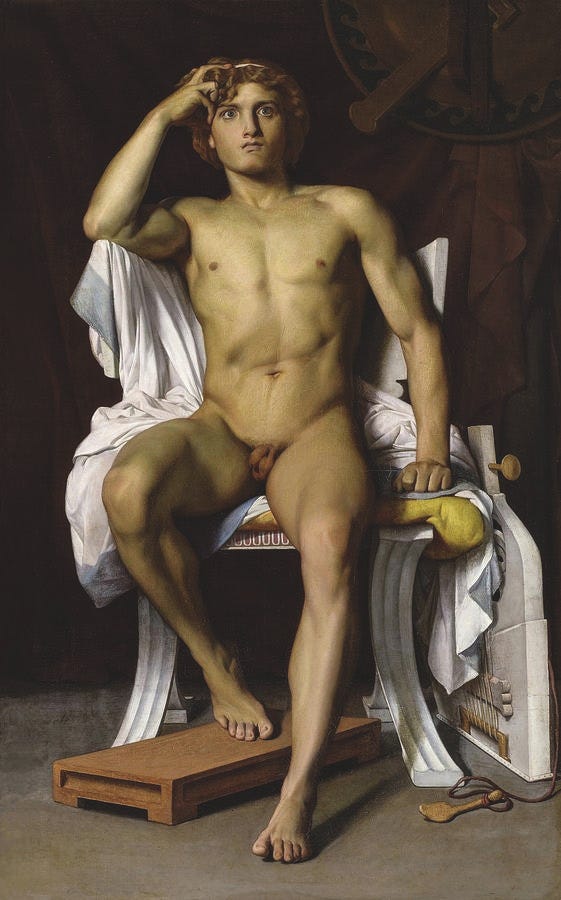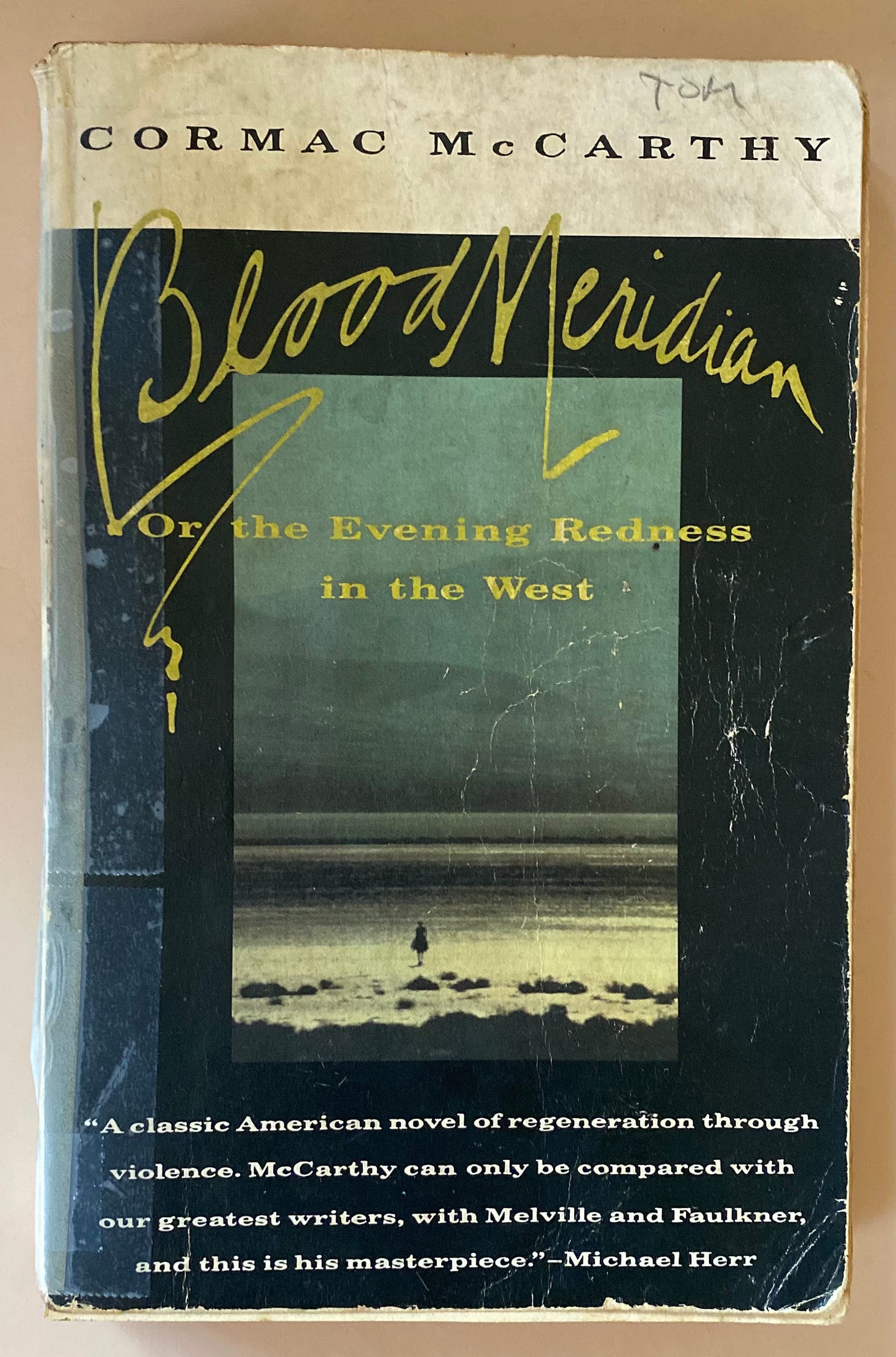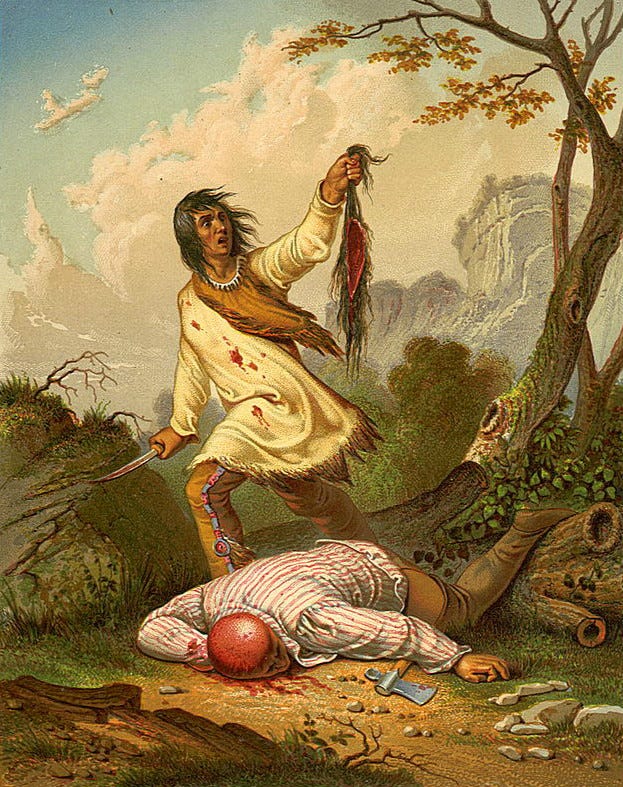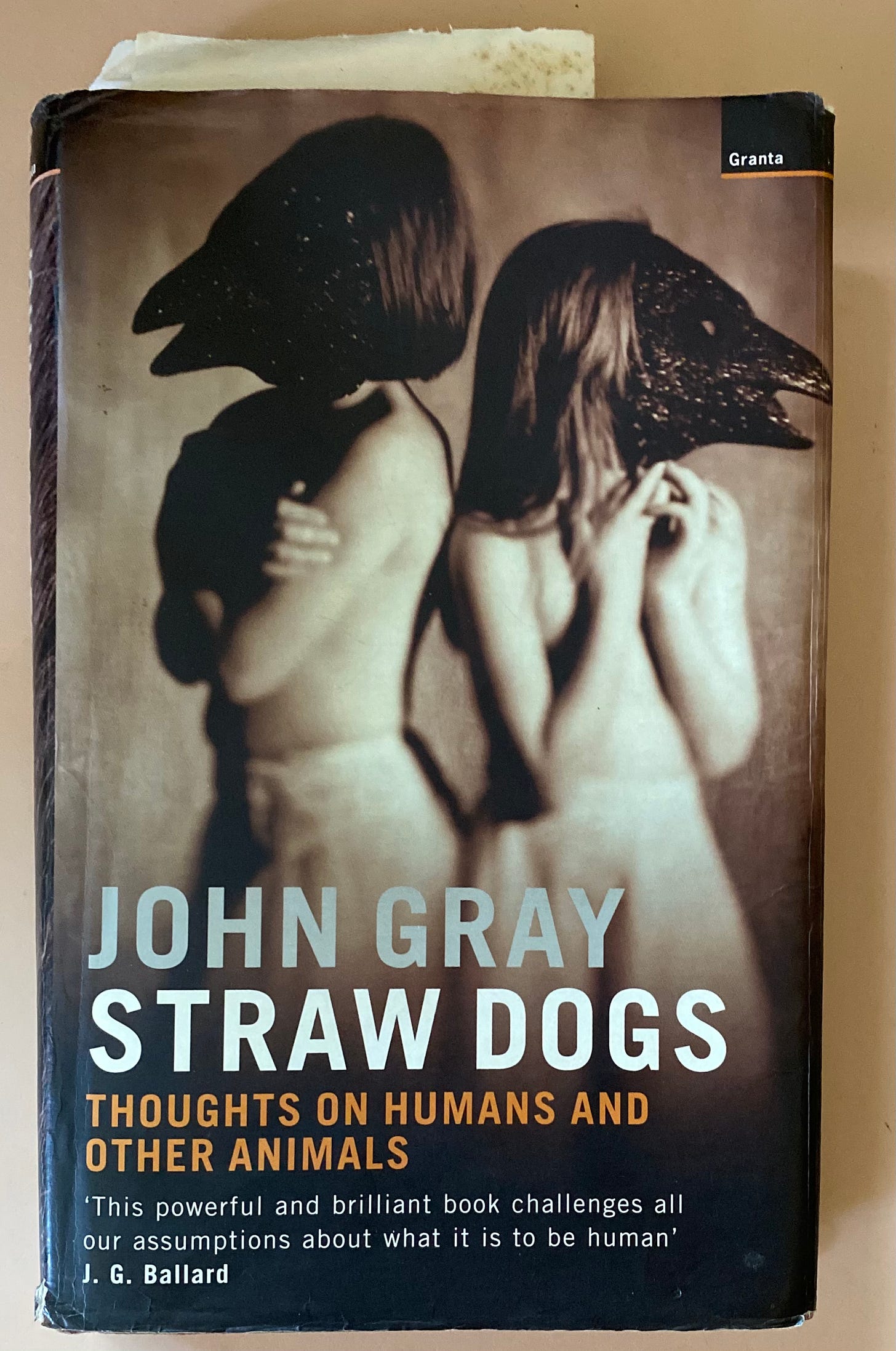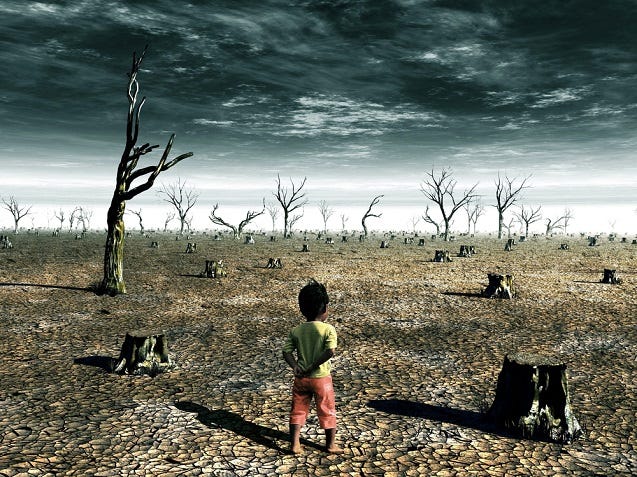On The Beach
A short summer reading list in fiction & nonfiction
What I see when I look to my left from where I sit as I write these words today . . .
Your heart's desire is to be told some mystery. The mystery is that there is no mystery.
— The Judge (Cormac McCarthy, “Blood Meridian: Or the Evening Redness in the West”)
A number of inquiries about books for summer reading have flooded in of late. For me, this is a somewhat baffling question, not because I’m at a loss for recommendations but only that I can’t really know what’s appropriate or fitting in terms of the multiplicity of interests and, perhaps better stated, the needs of each particular reader in question. On this perspective, I can simply suggest a few books that I have found both rewarding and provocative with the hope that others may also find something valuable in them to pass the time — and maybe enhance existence.
I think of this exercise as rather like a Rorschach test, in that whatever I recommend says more about me than the readers I have in mind. So be it. I am more than willing to bare my soul and project my personality (structure and identity) in such regard. That said, my aim — as always — is to point toward a range or variety of writing that edifies as much as it entertains.
Three books come to mind, in no particular order, which I’ve found to be as interesting and intriguing as they are compelling and fun to read. I love and have learned a great deal from each of them. Elizabeth Cook’s “Achilles” (2001); Cormac McCarthy’s “Blood Meridian: Or the Evening Redness in the West” (1985); and John Gray’s “Straw Dogs: Thoughts On Humans and Other Animals” (2002). Each of these books (and authors) are very different in virtually every respect other than perhaps a shared curiosity or study of the human condition in extremis.
Cook’s “Achilles” reads like an extended poem. It’s beautifully written, rather short (a mere 107 pages), and clearly an ode to Homer and his epic, foundational masterpiece The Iliad and its tragic protagonist: doomed Achilles. Bold Achilles the truth-teller, who outstrips all in every respect except a long life. He who followed his noble father — Peleus — in “always being out front ahead of others.” Alone in every possible way and without peer. “Like a god,” yet human, all too human; and mortal. The archetype of the most beautiful, fearless Nostoi (hero) that breathe power and fear (and submit to) no one and nothing. The Best. He who is equally loved, admired, and hated by gods and men alike.
But Achilles. Apollo hates Achilles. He has every reason to; for Achilles — not even a god — excels in everything that he, divine Apollo, is good at. Achilles is the best musician, the best archer. He is also — using only mortal means — the best physician: as good at dressing wounds as making them. And Zeus, Apollo’s father, loves Achilles as if he were his own.
The gods are as envious and jealous of Achilles as are all men — especially the dread Kings Agamemnon and Menalaus, to say nothing of Troy’s majestic Priam and his handsome, noble son Hector, Troy’s greatest Nostoi, who falls prematurely “into the dark shades” at the hands of Achilles unrestrained rage. But my favorite parts of this eloquent study in tragic nobility and naturalism1 regard his education with the venerable Centaur, Chiron.
Chiron represents the archetype of the educator par excellence in Greek mythology and, therefore, for all Western Civilization — for all time. Centaurs are typically wild, ferocious, and deadly monsters: especially when it comes to humans. It’s best to keep one’s distance from them. Yet the wise Chiron is unique, indeed singular, in his pedagogical devotion to teaching gods (including Apollo) and the most noble of humans, in this case Achilles. When Achilles is just a young boy, his father, the great warrior chief Peleus, takes (literally rips) the child from his goddess mother Thetis (she’s an immortal sea nymph, daughter of mighty Zeus himself) off to Mount Pelion — a remote mountain wilderness — to be educated by Chiron, who was also Peleus’ teacher. There in the wilderness, eating raw meat and sleeping in the forest, Achilles would learn to master all the arts and become the fiercest warrior of all time, in addition to the most outstanding athlete, poet, musician, and physician among men. Chiron paid some heavy dues himself to learn what he taught — and healed — others.
Years of experiment and practice made him a great and wise healer. But it is suffering — his own — which makes him the best. Because he can bear to suffer(though he cannot bear it, that is the trouble) he can judge exactly the extent of another’s need and when it has been assuaged. He knows who to treat, when to treat, and when to stop. He knows that the smallest quantities are often the most effective. He has taught (but only Asclepius has ever understood this) that the weapon which wounded you may sometimes be used to heal you.2

Centaurian wisdom is codeterminous or isomorphic with having lived dangerously — that is to say: experimentally (think off a tightrope walker or mountain climber or big wave rider) — and, moreover, having survived such risky living as only the most daring and exceptional are capable. A true educator such as Chiron takes risks and experiments successfully (fruitfully) with life and danger, with will and instinct, mind, spirit, soul and body and teaches by that example through bearing, being, and becoming. Chiron is a Master of Truth precisely because he embodies it.3 What is true — however hard, terrible, beautiful, awesome, or dangerous — would thus be useful to life. Here I am reminded of Nietzsche who teaches that: “The only means of really knowing something is by trying to do it.” And surviving such trials. Elsewhere, Nietzsche remarks:
Ultimately, the individual derives the values of his acts from himself; because he has to interpret in a quite individual way even the words he has inherited. His interpretation of a formula at least is personal, even if he does not create a formula: as an interpreter he is still creative. (The Will To Power § 767)
Those so experienced — men of action (not so much contemplation) — exemplify a distinctive power of expansion, a certain l’esprit fort (strength of spirit), in that they employ the ebb and flood of natural existence for the purpose of knowledge and wisdom in ways truly educational. A true educator is thus courageous and willing to push himself and his student(s) as hard and as far that ultimately transforms both teacher and learner. Here one discovers the archetype of mimesis (the ancient art or techne of imitation) and a source of great health.4
Cormac McCarthy’s “Blood Meridian: Or the Evening Redness in the West” is nothing short of an epic, a truly classic novel reminiscent of the greatest in not only American literature (think: Melville or Poe) but all literature: Homer, Dante, Conrad, et al. This book should — must — be read by everyone, at least everyone literate. But be forewarned: like my favorite film “Apocalypse Now” (1979), this is no easy read. Not in any way or sense; you will be disturbed and moved in ways few books can provoke a reader, taken to places of psychological extreme that challenge most basic assumptions and expectations about what it means to be an American, in particular, and a human being, more broadly considered.
The story follows a teenage “kid” on a veritable Odyssey throughout the American Southwest during the so-called “Westward Expansion” of the mid 19th Century along the Mexican borderlands. The main character is The Judge, who represents naked (literally bald — like Kurtz) Death and unrepentant Depravity itself, an avatar of American “exceptionalism,” one could say, and the bloody, violent, genocidal American fiction otherwise dressed up as “Manifest Destiny” in history class. The apocalyptic rhetoric is self-consciously Biblical, as if to mock (or contest) the vainglorious Judeo-Christian pretense of humanitarian “progress” Americans so often — to this day — indulge in when it comes to their vaunted “history.” Talk about Critical Race Theory! McCarthy takes it to another level.
The judge smiled. Men are born for games. Nothing else. Every child knows that play is nobler than work. He knows too that the worth or merit of a game is not inherent in the game itself but rather in the value of that which is put at hazard. Games of chance require a wager to have meaning at all. Games of sport involve the skill and strength of the opponents and the humiliation of defeat and the pride of victory are in themselves sufficient stake because they inhere in the worth of the principals and define them. But trial of chance or trial of worth all games aspire to the condition of war for here that which is wagered swallows up game, player, all.
And, further:
And the answer, said the judge. If God meant to interfere in the degeneracy of mankind would he not have done so by now? Wolves cull themselves, man. What other creature could? And is the race of man not more predacious yet? The way of the world is to bloom and to flower and die but in the affairs of men there is no waning and the noon of his expression signals the onset of night. His spirit is exhausted at the peak of its achievement. His meridian is at once his darkening and the evening of his day. He loves games? Let him play for stakes. This you see here, these ruins wondered at by tribes of savages, do you not think that this will be again? Aye. And again. With other people, with other sons.
Read it and weep. Cormac McCarthy is one of the finest writers that America has produced thus far; he shall remain in the pantheon with the best and brightest if not also the darkest and most disquieting. And he carries a heavy load with rare grace and aplomb while expressing with such powerful eloquence and probity a conscience otherwise too often suppressed.
John Gray is a fascinating individual, a contrarian after (or before) my own heart. Formerly on the faculty of the London School of Economics (now retired) and a cabinet minister to Prime Minister Margaret Thatcher back in the 1980s, he’s ostensibly a rather “conservative,” venerated economist and political scientist; but that would be to miss who (or what) he really is altogether. In my view, Gray is a genuine philosopher and a public intellectual in the superlative sense. He can write; and he writes very well in different styles for different audiences in ways altogether unique, powerful, and effective. I’ve learned so much from his erudition over the years and consider it both a privilege and pleasure to read him on virtually any topic.5
“Straw Dogs” is a case in point. This magisterial study in human delusion is a masterpiece in critical self-reflection and awareness of what it means to be a human animal that’s inextricably and ineluctably a part of nature. Which is to say, in other words, that Gray brilliantly exposes the “humanitarian” and “scientific” belief in “progress” for the anthropocentric (i.e., human-centered) narcissism it is. He exposes that belief in “progress” as commonly preached by Judeo-Christians or secular Pharisees of the Enlightenment alike in hackneyed terms of moving toward some bloodless abstraction of Utopia as fraudulent and bankrupt. Moroever, Gray argues persuasively that we humans are neither as autonomous, rational, nor self-directed (or self-determined) as we pretend. We’re messy, self-deluded creatures. Not just that, he shows how the human, all too human psycho-social pathology is not just destructive of the highest range of human potential and possibility but is, in fact, ecocidal. And it is the precisely ecological implications of his pedagogical politics that are so timely, compelling, relevant, and significant for us at this crisis point in Earth history.
Humankind's presence on Earth is nothing but a cancer.
And:
Humans think they are free, conscious beings, when in truth they are deluded animals. At the same time they never cease trying to escape from what they imagine themselves to be. Their religions are attempts to be rid of a freedom they have never possessed. In the twentieth century, the utopias of Right and Left served the same function. Today, when politics is unconvincing even as entertainment, science has taken on the role of mankind's deliverer.
And:
Humans cannot live without illusions. For the men and women of today, an irrational faith in progress may be the only antidote to nihilism. Without the hope that the future will be better than the past, they could not go on.
To my mind, the heuristic enterprise of Gray’s challenge to carefully and critically reexamine the most basic assumptions and expectations that attend most of what is typically taken for granted or considered settled in human affairs — across an otherwise polarized, altogether incommensurable socio-political spectrum — serves the real value and import of this slim monograph. His is an existential challenge to transcend and overcome stale, childish anthropocentric fantasies (which have their root in contemporary Judeo-Christian and secular, scientific prejudices and practices alike) and approach — even adopt — a rather more mature, enlightened standpoint phrased in renaturalized terms of a reinvigorated ecocentrism, which understands human existence within a broader continuum of natural relations and continuities that define us all, whether we know (or admit) it or not. These are the pedagogical politics of self-overcoming so desperately needed at this crisis point in natural human history. I’m reminded again of Nietzsche (oft cited by Gray) in such respect:
The best we can do is to confront our inherited and hereditary nature with our knowledge of it, and through a new, stern discipline combat our inborn heritage and implant in ourselves a new habit, a new instinct, a second nature, so that our first nature withers away. It is an attempt to give oneself, as it were a posteriori, a past in which one would like to originate in opposition to that in which one did originate: — always a dangerous attempt because it is so hard to know the limit to denial of the past and because second natures are usually weaker than the first. (On the Uses & Disadvantages of History For Life § 3).6
Thereby Gray, like Nietzsche before him, suggests what I would call a radical ecological perspectivism (i.e., the widest, clearest possible lens through which to critically examine what it means to be human on Earth) that entreats the reader to entertain and understand “other points of view,” as it were, in a manner consistent with probity (second time I used this word in this essay) about nature and natural systems of life on this planet. We humans are not so unique and distinct from everything else on Earth — or for that matter the Cosmos — as we tend to falsely believe. This exercise in probity necessarily weakens so-called “humanitarian” or “humanistic” delusions that have profound implications for what we consider(ed) important and valuable, and, most significantly: the ways we can and should take responsibility for how live our lives today and tomorrow.
Long after the traces of the human animal have disappeared, many of the species it is bent on destroying will still be around, along with others that have yet to spring up . . . The Earth will forget mankind. The play of life will go on.
Huelo Hale, Paumalu 2021
SEE: “Nobility, Tragedy, & Naturalism: Education in Ancient Greece,” Edited by J.J. Cambliss (1971).
SEE: “Asklepios: Archetypal Image of the Physican’s Existence,” Carl Kerenyi (1959).
SEE: “Nietzsche and the Masters of Truth,” by Béatrice Han in “Nietzsche and the Divine,” edited. y John Lippitt and John Urpeth (2000).
SEE: “Greek Philosophical Terms: A Historical Lexicon,” F.E. Peters, pp. 118-119 (1967).
Gray is a regular contributor to The New York Review of Books in addition to a shelf or two of books he’s published in economics and political philosophy. SEE, e.g., Liberalism (1995) wherein he identifies the common strands in liberal thought as being individualist, egalitarian, meliorist, and universalist. The individualist element avers the ethical primacy of the human being against the pressures of social collectivism, the egalitarian element assigns the same moral worth and status to all individuals, the meliorist element asserts that successive generations can improve their sociopolitical arrangements, and the universalist element affirms the moral unity of the human species and marginalizes local cultural differences.
SEE also § 10: “Empty being is granted me, but not full and green ‘life’; the feeling that tells me I exist warrants to me only that I am a thinking creature, not that I am a living one, not that I am an animal but at most cogital. Only give me life, then I will create a culture for you out of it! . . . Who is to give them this life? No god and no man: only their own youth: unchain this and you will have liberated life . . . But it is this sick, this unchained life [that] needs to be cured.”






